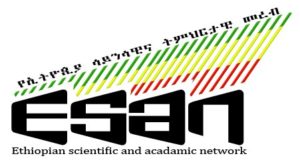APGA
The 13th All Africana Post-Graduate Academy (APGA)
 In collaboration with Department of Industrial Engineering, Tshwane University of Technology (TUT) and the Ethiopian Scientific & Academic Network (ESAN) are organizing Online Training.
In collaboration with Department of Industrial Engineering, Tshwane University of Technology (TUT) and the Ethiopian Scientific & Academic Network (ESAN) are organizing Online Training.
Title: “Consilience to Unifying Knowledge with Integrated Action, Problem, Project, Work Based Research for Relevant and Effective High Quality Output”
Date : 14th June 2020
Time : 8:45 – 16:00 South Africa Standard Time (GMT+2)
Online Zoom Meeting ID : 884 041 8580
Password : 6m4kTH
Link:
https://tut.zoom.us/j/8840418580?pwd=L1B4V2lTQ1hUVllPWDFLUVNTajhCdz09
This is an on-line AGPA and we expect many of the post graduates from different disciplines will join. The Zoom meeting app that can accommodate as many as 500 participants will be utilized. All post-graduates are most welcome to join together on line to share and exchange on how to do and deliver high quality research output in scholarly journals. The topics to focus on will include the following: • Innovative Ways of Dealing with Research Gaps During the Transition from the Physical to the Digital world and the Current Corona Virus Time • Framing Policy Research in Africa: Issues and Challenges for Doctoral Candidates • Research in Mind set shifts for new digital commons • Doing Designed ecosystem research for Sustainable and unified socioeconomic resilience • Building synergy in research missions and narratives
Past events
The 12th Africana Post-Graduate Academy (APGA)
Ethiopian Scientific and Academic Network (ESAN) (https://esannet.com) are organising Online Training:
Conducting Quality and Innovative Research Amidst the Lock-Down
Coordinators: Mammo Muchie,TUT &Prof.Nnamdi Nwulu(UJ)
Date & Time: Monday
April 27, 2020 8:45 AM
Contact: muchiem@tut.ac.za)
| Time | Topic | Presenter |
| 08:45 – 09:00 | Opening and Welcome | Prof Mammo Muchie DST/NRF SARChI Professor on Innovation & Development, TUT |
| 09:00 – 09:30 | Decoding the Research Journey to Create High Quality Output | Prof Mammo Muchie DST/NRF SARChI Professor on Innovation & Development, TUT |
| 09:30 – 10:00 | COVID-19: Impact on Academic research and current research gaps | Prof. Nnamdi Nwulu, University of Johannesburg |
| 10:00 – 10:30 | Theoretical and conceptual frameworks in Research | Prof UI Ogbonnaya University of Pretoria |
| 10:30 – 11:00 | Leveraging on modelling and simulation in conducting your research | Prof Amevi Acakpovi Dean of Engineering, Accra Technical University, Ghana & Senior Research Associate, UJ |
| 11:00 – 11:30 | A primer on avoiding plagiarism | Prof. Khumbulani Mpofu Gibela Research Chair in Manufacturing and Skills Development &DSI – NRF SARChI Chair in Future Transport Manufacturing Technologies |
| 11:30 – 12:00 | How to write an excellent journal article and publish in accredited journals | Prof Kofi Poku Quan-Baffour Department of Adult Education. University of South Africa |
| 12:00 – 12:30 | How to write a research book (monograph) | Prof Clinton Aigbavboa Director: CIDB Centre of Excellence & Sustainable Human Settlement and Construction Research Centre, UJ |
| Postgraduate students presentations | ||
| 12:45 – 13:00 | Presentation 1 | Omolola Ogbolumani, UJ |
| 13:00 – 13:15 | Presentation 2 | Jaravaza Kefas, MSU University, Zimbabwe |
| 13:15 – 13:30 | Presentation 3 | Happines MA, Wits University |
| 13:30 – 13:45 | Presentation 4 | Fortune Sibanda Namibia University |
| 13:45-14:00 | Presentation 5 | Ammar Siddiqui, Wits University |
| 14:00 – 14:10 | Closing Remarks: Going Forward | Prof Mammo Muchie DST/NRF SARChI Professor on Innovation & Development, TUT |
Background
This is the first on-line AGPA we have decided to run and we expect as many of the post graduates from different disciplines will join us. We are utilizing the Zoom meeting app that can accommodate as many as 500 participants. All of you post-graduates are most welcome to join us and share and exchange about how to do and deliver high quality research output that achieve publication in rated scientific journals.
The topics to focus on will include the following
- COVID-19:
Impact on Academic research and current research gaps - How to write an excellent journal article and
publish in accredited journals? - A primer on avoiding plagiarism
- A step-by step guide to developing a theoretical and conceptual
framework - Leveraging on modelling and simulation in conducting effective research
How do we go about identifying a problem worth investigating and spending time on by selecting a research conceptual frame to produce the much needed and relevant tools to explore and produce new, tangible and measurable ideas, outcomes and results? The first and foremost task to begin any research in any field or discipline is defining a research problem.
II. Research Paradigm
How is knowledge created and developed?
Research Philosophy has ontology, epistemology and axiology dealing with the nature of reality, the nature of knowledge and selecting the appropriate values and ethics. There is also research paradigm how to see the world and to understand it. There is positivism, normativism, interpretivism, constructivism and phenomenology by adding specific contexts in order to learn how to be able to identify what, how and why to come to know what is or what ought to be discovered, identified, distinguished and selected. There are theories that are grounded, appreciative and abstract and research approaches that are inductive and deductive with hypotheses that have to be clearly articulated to advance the research designand process to facilitate the creation of original output.
The key challenge is to discover the specific research approach to address the research problem and construct, identify and distinguish the methodology from the methods by using the appropriate research design to undertake the research process and practice to generate the best quality results on time.
III: Program Design
The mentors will contribute on how best high-quality creative research will be achieved in time based on their own life-long research work. They will also give lectures on their-cutting edge research to pass knowledge on how younger researchers can learn to address the research challenges they themselves too went through their own specific long journeys. There will also be presentations by post-graduates of their own research including papers they wish to publish to get critical feedback.
The Programme will include:
Post-Docs sharing their PhD Experience
3.. Post-Graduate Presentation
4.Feedback from mentors, post docs and from post-grads from each other
5. Open question and answer time
6. Recommendations for publication in appropriate journals
NB:
Staff and students from all faculties are welcome as we promote the unity of
knowledge in APGA.APGA (www.sarchi.org) in collaboration with ASAN(https://esannet.com/asan-2/) have organised for post-graduates on how to undertake high quality and productive research
